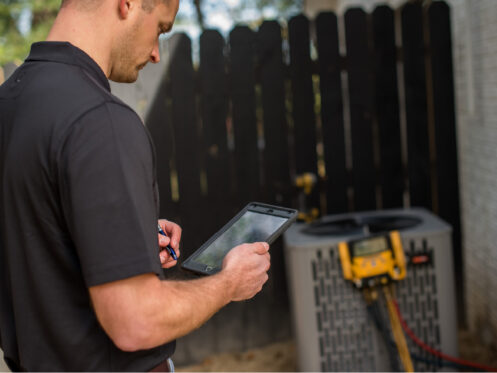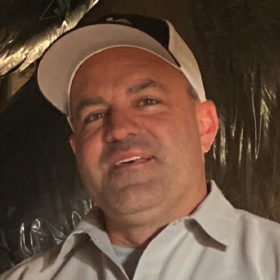The blower motor plays a critical role in your HVAC system by propelling the fan, enabling treated air to flow from the main unit and circulate throughout your home for effective temperature regulation. Given the importance of the blower motor, it is helpful to know when something is amiss with this component to act quickly and schedule repair services in a timely manner to prevent catastrophic issues. Consider some top signs that indicate that your HVAC blower motor is going bad.
Weak or Absent Airflow From the Vents
Poor airflow is often the first sign of a bad blower motor. Some factors that are responsible for causing this issue include dirt or dust buildup, excessive moisture, or a bad capacitor. Airflow can also weaken or disappear if your motor has reached the end of its lifespan. Regardless of the cause of this problem, it is important to reach out to a professional to investigate the issue before it escalates further. For example, weak or absent airflow can cause the evaporator coils to freeze over since there is no air consistently pushing across the coils. This disrupts the normal HVAC cycle and can eventually cause the system to shut down.
Unusual Noises From Your HVAC Unit
A bad blower motor can result in strange sounds from the HVAC air handler or indoor unit. Different noises indicate various degrees of severity related to the motor problem. For instance, a screeching or squealing sound can signify that the blower motor has a torn belt, damaged bearings, or improper alignment. Likewise, rattling or clanging sounds can mean that some components in the motor may be broken or loose. A particularly worrisome sign is a loud banging sound, as it can suggest disconnected or damaged components. If you hear this sound, immediately turn off the system and contact an HVAC company for help.
Unpleasant Smells From Your HVAC System
While many people may associate unwanted odors with mold or bacteria, a bad blower motor can also emit unpleasant smells. The most common odor you may notice from problems with this component is a burnt or scorched smell. Burning smells can indicate friction that has created extra heat. These odors can even result from melted wiring. Because you can never be sure of the extent of burn damage, you should never attempt to fix this problem on your own because doing so can result in dangerous consequences that can include property damage, severe injury, or a loss of life. Instead, contact an HVAC technician for assistance.
Unusually High Energy Bills
Blower motor problems can cause a sudden spike in utility bills. If this component is struggling to help distribute treated air throughout the home, your HVAC equipment may overcompensate by working harder to maintain consistent indoor temperatures. Your system may start and stop more often to reach the setting on your thermostat. This process of stopping and restarting is known as short cycling. Unfortunately, short cycling draws excessive power from the grid, and you may end up paying more for this extra energy consumption.
Overheating HVAC System
Overheating is another telltale sign of a bad blower motor. This problem occurs when a defective motor works harder to complete normal daily operations. The motor can eventually draw too many amps while in use. You can often identify overheating from the smell of fumes from vents, and some motor models shut down to prevent an electrical fire. Since overheating constitutes a safety hazard, turn off the system and contact an HVAC company immediately.
Yellow Pilot Light
For gas-powered systems, a yellow pilot light may also indicate a bad blower motor, as the lack of airflow that can result from this component failing can cause incomplete combustion. Under normal circumstances, a pilot light should be blue with a steady flame. This blue light shows that the unit is burning natural gas, and the blower motor is distributing air evenly and effectively. If you notice a dull or flickering yellow pilot light, this can be a sign of a harmful carbon monoxide (CO) leak. This type of leak can occur when the combustion process is incomplete, allowing CO to build up to dangerous levels. Since the highest concentrations of carbon monoxide can be lethal, it is important to call for professional help as soon as you notice this problem.
Inconsistent Household Temperatures
When your blower motor is working properly, the temperature in your home will remain stable. However, if you suddenly notice fluctuating temperatures throughout your home, you may have a malfunctioning blower motor. Temperatures will fluctuate when this component is no longer operating at peak efficiency, and this is because your system is not effectively distributing heated or cooled air. An HVAC technician can determine whether your blower motor is the reason for lacking temperature regulation.
What Should I Expect If the Blower Motor Goes Out?
Now that you know the signs of a bad blower motor, it is understandable that you may wonder about how an HVAC technician will rectify the problem. You can expect two possible outcomes.
Repair the Blower Motor
If your HVAC blower motor is a more recent model or if the problem is straightforward, an HVAC technician can repair the issue. For example, repairs can include realigning the blower belt or upgrading the capacitator. Sometimes the fix is as simple as removing debris from in or around the blower motor itself.
Replace the Blower Motor
Your HVAC technician may determine that the blower motor has reached the end of its lifespan or is damaged beyond repair. In this case, you will need to replace it with an appropriate model. To choose the right model for your household, the technician will need to consider the drive type of the motor along with its diameter, rotation direction, horsepower, voltage, and capacitator size. Some homeowners also use this opportunity to upgrade from a single-speed blower motor to a smart variable-speed model. This type of motor uses machine learning to automatically adjust speeds based on the heating or cooling needs of the home, thereby saving energy.
Preventing Blower Motor Problems
Once the HVAC technician has repaired or replaced the motor, avoid further issues by keeping up with annual inspections and regular maintenance. Many HVAC professionals will test your blower motor twice a year to ensure it remains in good working order. Technicians can also clean and lubricate the motor during routine maintenance to help ensure maximum performance and full life expectancy.
Contact Us Today
A bad blower motor can negatively impact the comfort of you and your family. Fortunately, our highly experienced technicians can help. Cozy Home Services provides HVAC services for homes in Vacaville, CA and the surrounding areas. We can install and inspect all heating and cooling systems as well as perform routine maintenance. In addition, our technicians conduct home performance Analyses and can repair or replace ductwork or other HVAC components. No matter the issue, we can assist you. Contact Cozy Home Services today for all your HVAC needs.



